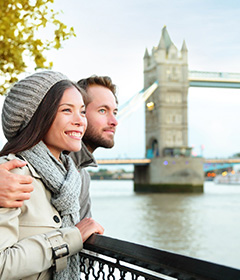Exploring new destinations can be exhilarating, but it also comes with inherent risks, especially when venturing into unfamiliar territory. Ensuring your safety while traveling is paramount to enjoying a worry-free adventure. From meticulous pre-trip planning to on-the-ground vigilance, there are numerous strategies travelers can employ to protect themselves and their belongings. This comprehensive guide delves into essential safety measures, offering expert advice on navigating foreign environments with confidence and security.
Pre-travel risk assessment and destination research
Before embarking on any journey, conducting thorough research about your destination is crucial. This preparatory phase sets the foundation for a safe and enjoyable trip, allowing you to anticipate potential challenges and plan accordingly. By leveraging various resources and analytical tools, you can gain valuable insights into the safety landscape of your chosen location.
Utilizing government travel advisories and embassy resources
Government travel advisories are invaluable resources for up-to-date information on safety concerns, entry requirements, and local laws. These official sources provide comprehensive guidance tailored to your nationality, offering critical insights that can shape your travel plans. Be sure to check advisories from multiple countries for a well-rounded perspective, as different nations may have varying assessments of risk levels.
Analyzing crime statistics and local safety reports
Delving into crime statistics and safety reports can offer a more nuanced understanding of potential risks in your destination. Look for recent trends, areas to avoid, and common types of crimes targeting tourists. However, interpret this data with caution, as statistics can sometimes paint an incomplete picture. Supplement your research with firsthand accounts from recent travelers and expat forums for a more balanced view.
Evaluating health risks and required vaccinations
Health considerations are paramount when traveling to unfamiliar destinations. Consult with a travel health specialist or your local health department to determine necessary vaccinations and health precautions. Pay attention to endemic diseases, water safety, and air quality issues that may affect your well-being during your stay. Consider purchasing comprehensive travel insurance that covers medical emergencies and evacuation.
Assessing political stability and cultural sensitivities
Understanding the political climate and cultural norms of your destination is crucial for avoiding unnecessary risks. Stay informed about upcoming elections, demonstrations, or potential civil unrest that could impact your travel plans. Familiarize yourself with local customs, dress codes, and etiquette to avoid inadvertently offending locals or drawing unwanted attention.
Secure accommodation selection and transportation planning
Choosing safe accommodation and reliable transportation options forms the backbone of a secure travel experience. By making informed decisions about where you stay and how you move around, you can significantly reduce your vulnerability to potential threats.
Vetting hotels through safety certifications and traveller reviews
When selecting accommodation, prioritize properties with recognized safety certifications and positive reviews from fellow travelers. Look for hotels that implement modern security measures such as 24/7 surveillance, key card access, and in-room safes. Pay attention to the neighborhood’s safety reputation and proximity to reliable transportation options.
Implementing room safety protocols and emergency exit strategies
Upon arrival at your accommodation, take time to familiarize yourself with emergency exits and fire safety procedures. Consider bringing a portable door lock or alarm for added security. Always use the peephole before opening your door to visitors, and keep valuables secured in the room safe or with hotel management.
Remember, your hotel room is your sanctuary in a foreign land. Take every precaution to ensure it remains a safe haven throughout your stay.
Choosing reputable taxi services and ride-hailing apps
Transportation safety is crucial, especially in unfamiliar cities. Stick to official, licensed taxi services or reputable ride-hailing apps. Before entering any vehicle, verify the driver’s credentials and ensure the car matches the description provided. When possible, arrange airport transfers through your hotel or a trusted travel agency.
Planning safe routes and avoiding high-risk areas
Research safe routes before venturing out, particularly if you plan to explore on foot or use public transportation. Identify areas known for higher crime rates or tourist-targeted scams and plan your itinerary to avoid these locations, especially after dark. Consider using offline maps to navigate without relying on an internet connection.
Digital security measures for travellers
In today’s interconnected world, digital security is as important as physical safety when traveling. Protecting your personal information and maintaining secure communication channels can prevent identity theft, financial fraud, and other cyber-related risks.
Utilizing VPNs and encrypted communication apps
When accessing the internet abroad, always use a reputable Virtual Private Network (VPN) to encrypt your online activities. This is especially important when using public Wi-Fi networks in hotels, cafes, or airports. Additionally, opt for encrypted messaging apps like Signal or WhatsApp for communicating with friends and family back home.
Implementing two-factor authentication for travel accounts
Before your trip, enable two-factor authentication on all your important accounts, including email, banking, and social media. This adds an extra layer of security, making it more difficult for unauthorized users to access your sensitive information, even if they manage to obtain your password.
Safeguarding personal data on public Wi-Fi networks
Public Wi-Fi networks are notoriously insecure and often targeted by cybercriminals. Avoid accessing sensitive information, such as online banking or credit card details, while connected to public Wi-Fi. If you must use these networks, ensure you’re connected through a VPN and log out of all accounts when finished.
Emergency preparedness and local support systems
Being prepared for emergencies is an essential aspect of travel safety. Knowing how to access help quickly and effectively can make a significant difference in crisis situations.
Creating a detailed itinerary and emergency contact plan
Before departure, share a detailed itinerary with trusted friends or family members. Include information about your accommodations, planned activities, and transportation details. Establish a communication plan, agreeing on regular check-ins and procedures for what to do if you miss a scheduled contact.
Registering with embassy services like STEP or LOCATE
Many countries offer services for citizens traveling abroad, such as the U.S. State Department’s Smart Traveler Enrollment Program (STEP) or the Australian government’s LOCATE service. Registering with these programs allows your embassy to contact you in case of emergencies and provide crucial assistance if needed.
Identifying local emergency services and healthcare facilities
Research and note down local emergency numbers, including police, ambulance, and fire services. Identify reputable healthcare facilities near your accommodation and along your planned routes. Consider carrying a card with this information, along with any relevant medical details, in the local language.
Preparing a multilingual emergency phrase book
Create a small phrase book or digital note with key emergency phrases in the local language. Include terms for “help,” “police,” “hospital,” and basic medical conditions. This can be invaluable in situations where you need to communicate urgently with non-English speakers.
Cultural awareness and situational vigilance
Understanding and respecting local customs while maintaining a heightened awareness of your surroundings can significantly enhance your safety in unfamiliar destinations.
Understanding local customs and etiquette to avoid conflicts
Take time to learn about local customs, religious practices, and social norms before your trip. This knowledge can help you avoid unintentionally offensive behavior and reduce the risk of conflicts with locals. Pay attention to dress codes, particularly when visiting religious sites or conservative areas.
Recognising common scams and tourist-targeted crimes
Familiarize yourself with common scams and crimes that target tourists in your destination. These might include pickpocketing techniques, distraction thefts, or elaborate schemes designed to separate you from your valuables. Staying informed about these tactics can help you spot potential threats and avoid becoming a victim.
Stay alert, trust your instincts, and remember that if an offer seems too good to be true, it probably is.
Developing street smarts and environmental awareness
Cultivate a habit of constant situational awareness. Pay attention to your surroundings, trust your instincts if a situation feels unsafe, and be prepared to change your plans if necessary. Avoid displaying expensive jewelry or electronics, and keep a low profile in unfamiliar areas. Remember, confidence and purposeful movement can deter potential wrongdoers.
Travel insurance and documentation safeguards
Proper insurance coverage and secure documentation management are crucial elements of travel safety, providing financial protection and peace of mind during your journey.
Selecting comprehensive travel insurance with emergency evacuation
Invest in a comprehensive travel insurance policy that covers medical emergencies, trip cancellations, and lost luggage. Pay particular attention to policies that include emergency medical evacuation coverage, which can be lifesaving in remote or underdeveloped areas. Read the fine print carefully to understand what is and isn’t covered, especially regarding adventure activities or pre-existing conditions.
Secure storage of vital documents and digital backups
Make multiple copies of important documents such as your passport, visa, insurance policy, and credit cards. Store physical copies separately from the originals and create secure digital backups. Consider using encrypted cloud storage services to access these documents from anywhere in the world. Keep a list of emergency contact numbers, including your bank’s international helpline, in both physical and digital formats.
Understanding visa requirements and entry regulations
Thoroughly research visa requirements and entry regulations for your destination well in advance of your trip. Be aware of any recent changes in immigration policies that might affect your travel plans. Ensure all your travel documents are up to date and valid for the required period beyond your planned return date.
By implementing these comprehensive safety measures, you can significantly reduce risks and enhance your travel experience in unfamiliar destinations. Remember that while preparation is key, remaining flexible and adaptable to changing circumstances is equally important. Stay informed, stay alert, and most importantly, enjoy the enriching experiences that travel has to offer.


